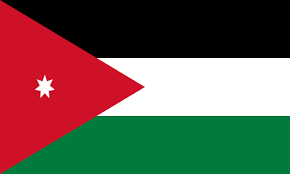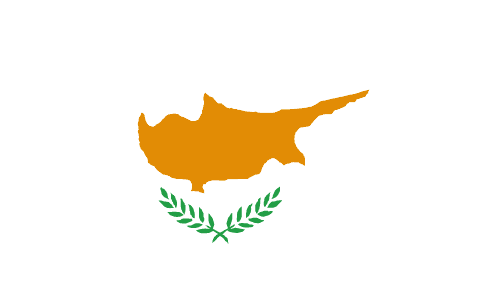GENERAL INFORMATION
Jordan is an Arab kingdom in Western Asia, on the East Bank of the Jordan River. Jordan is bordered by Saudi Arabia to the east and south; Iraq to the north-east; Syria to the north; Palestine and the Dead Sea to the west; and the Red Sea in its extreme south-west. Jordan is strategically located at the crossroads of Asia, Africa and Europe. The capital, Amman, is Jordan’s most populous city as well as the country’s economic, political and cultural center.
Jordan is a relatively small, semi-arid, almost-landlocked country with a population numbering 9.5 million. Sunni Islam, practiced by around 92% of the population, is the dominant religion in Jordan. It co-exists with an indigenous Christian minority. Jordan is considered to be among the safest of Arab countries in the Middle East. The kingdom is also a refuge to thousands of Iraqi Christians fleeing the Islamic State. While Jordan continues to accept refugees, the recent large influx from Syria placed substantial strain on national resources and infrastructure.
Although the Jordanian economy is one of the smallest economies in the region, it is still attractive to foreign investors because of skilled workforce and as a touristic destination.
REGULATORY EFFICENCY
Despite persistent bureaucratic obstacles and delays, reforms carried out in recent years have made business formation and operation more efficient and dynamic.
Trade is important to Jordan’s economy; the value of exports and imports taken together equals 98 percent of GDP. The average applied tariff rate is 4.0 percent. The government screens foreign investment and restricts investment in some sectors of the economy. Along with financial-sector policies that are intended to enhance competition and efficiency, banking supervision and regulation generally conforms to international standards.
Over the past 10 years, Jordan has pursued structural reforms in education, health, as well as privatization and liberalization. The Government of Jordan has introduced social protection systems and reformed subsidies, creating the conditions for public-private partnerships in infrastructure and making tax reforms.
Local income taxes
The Jordan PIT is the only tax on personal income in Jordan. There are no other taxes on personal income imposed at the local level.
The corporate tax rates in Jordan are applied based on the industry/business activities from which the taxpayer generates income. According to the income tax law, the corporate tax rates are as follows:
- 35% for banks.
- 24% for telecommunication, insurance and reinsurance, financial intermediation companies (including exchange and finance leasing companies), companies that generate and distribute electricity, and companies that undertake mining raw material activities.
- 14% for the industrial sector
- 20% for other companiesJordanian resident corporations are not subject to income tax on their worldwide income unless that income is raised from sources that originate and relate to Jordanian deposits and funds.
For foreign branches of Jordanian resident corporations, all of the branch net income is taxed at a fixed rate of 10%.
WHY SHOULD YOU CHOOSE TO INVEST IN JORDAN
Strong Points
– For several years the country has registered substantial growth and the Jordanian market is opening progressively.
– The government has made a remarkable effort in controlling public spending, which has placed Jordan among the most dynamic countries in the Middle East.
– Jordan has also backed the human factor and its workforce is among the best-trained ones in the Arab world.
– The country is politically stable.
– Its geographical location is also an important asset.
– The agreements signed by the country have given Jordan access to more than a billion potential consumers.
FOREIGN INVESTMENT
10 Reasons to Invest in Jordan
1. Unique and Strategic Location
- Situated at the convergence of Europe, Asia and Africa.
- Transportation hub of the Middle East.
- Access to the Red Sea through the Port of Aqaba, and other ports via neighboring countries.
2. Stable Political Environment
- Dedicated and stable leadership in the Hashemite monarchy, supported by a democratically elected Parliament.
- Guaranteed freedom of belief, speech, press, association and private property.
- Firm commitment to private enterprise system.
3. Free Market Oriented Economy
- Economic policies based on outward-oriented, private sector led approach.
- Ongoing privatization of major state-owned enterprises.
- Significant advances in structural and legal reform.
4. A Package of Incentives and Exemptions to Encourage Investment
- Projects are exempted from income and social services taxes by 25%, 50%, or 75% for a ten year period, depending on the location of the project.
- Imported fixed assets are 100% exempted from customs duties and taxes.
- Imported spare parts for fixed assets can be exempted from fees and taxes.
- Additional exemption from customs duties and income tax is granted for the expansion, modernization, or development of existing projects.
- Hotels and hospitals may purchase furniture and supplies without customs duties once every seven years for renewal purposes.
5. Access to Major International Markets
- Duty and quota free access to the US market through the Qualifying Industrial Zones (QIZ).
- Duty free access to EU markets.
- Access to more than 10 Arab countries through the AFTA.
- Bilateral agreements and favorable protocols with over 20 countries.
- Member of the Multilateral Investment Guarantee Agency (MIGA).
6. Free Zones and Industrial Estates
- The Free Zone Corporation manages two fully operational industrial parks in Aqaba and Zarqa, and two more under construction in Amman at the Sahab Industrial Estate and the Queen Alia International Airport.
- Five private free zones in Jordan employ over 2,500 people in industries such parks in Amman, Irbid and Al-Karak.
- Newly opened private industrial parks, including Al Tajamouat, Ad-Dulay1 and Gateway.
7. Qualified and Competitive Human Resources
- Abundant workforce. Young and highly educated population.
- 87% of the population is literate.
- 17% of Jordanians receive higher education.
- Highly competitive wage rates.
8. World Class Infrastructure and Communications
- State telephone company operates on a commercial basis, and is expected to privatize 40% of company in the near future.
- Choice of privately-owned Internet service providers.
- Direct Royal Jordanian flights to 47 Major Cities in Europe, the Middle East, the Far East, North Africa and North America. Served by 26 international airlines.
- Modern highway network Major trucking lines ensuring the movement of raw materials to and from the port of Aqaba as well as into and from ports of neigh boring countries.
- Jordan’s port of Aqaba acts as a strategically located gateway to Jordan, the developing Red Sea region, and the Middle East as a whole.
9. Attractive Investment Climate
- Income and social services tax exemptions for up to 10 years.
- Total customs exemptions on imported fixed assets.
- Ease of licensing and registration procedures.
- Revenues on exports are exempted from income taxes.
- Export industries are not subject to customs duties on imported raw material.
- Free repatriation of capital, profits and salaries.
10. High Quality of Life
- Amenities of modern life are readily available and affordable.
- High quality public and private education provided in Arabic, English, and French.
- Health services in Jordan are of international standards at reasonable rates.
- Developed network in community, active local and international business associations and cultural centers.
- Traditional festivals, cultural entertainment events, and a wealth of archeological sites.
- Excellent clubs and restaurants.
 Jordan
Jordan
 Cyprus
Cyprus
 Lebanon
Lebanon

